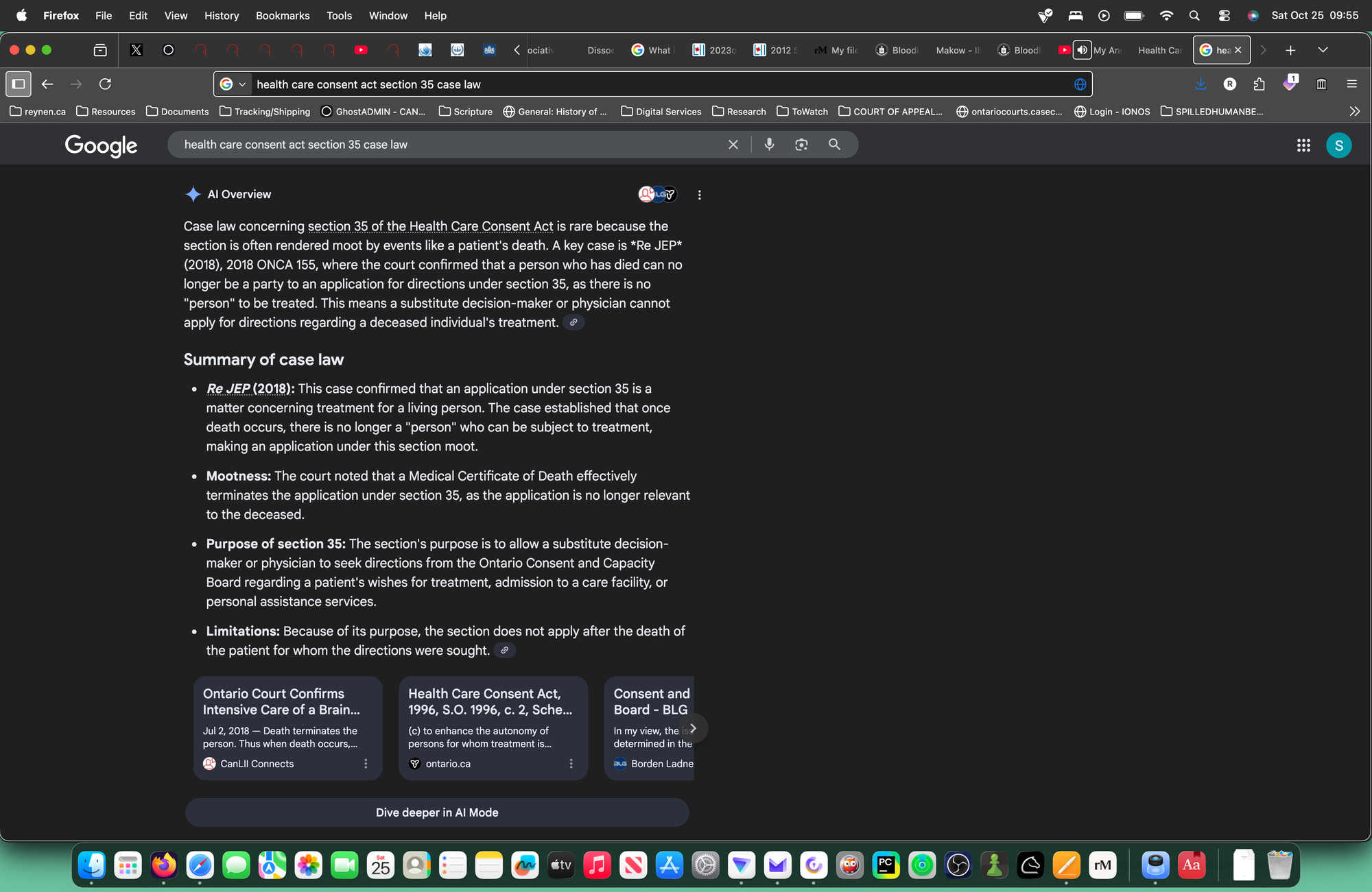Canadian Case Law for Section 35 of the Health Care Consent Act (Surprise!) - Dr. Rogers Form D/E Application (appealing to the Ontario Court of Appeals)

Case law concerning section 35 of the Health Care Consent Act is rare because the section is often rendered moot by events like a patient's death. A key case is *Re JEP* (2018), 2018 ONCA 155, where the court confirmed that a person who has died can no longer be a party to an application for directions under section 35, as there is no "person" to be treated. This means a substitute decision-maker or physician cannot apply for directions regarding a deceased individual's treatment. Summary of case law
- Re JEP (2018): This case confirmed that an application under section 35 is a matter concerning treatment for a living person. The case established that once death occurs, there is no longer a "person" who can be subject to treatment, making an application under this section moot.
- Mootness: The court noted that a Medical Certificate of Death effectively terminates the application under section 35, as the application is no longer relevant to the deceased.
- Purpose of section 35: The section's purpose is to allow a substitute decision-maker or physician to seek directions from the Ontario Consent and Capacity Board regarding a patient's wishes for treatment, admission to a care facility, or personal assistance services.
- Limitations: Because of its purpose, the section does not apply after the death of the patient for whom the directions were sought.
Dr. ROGERS: Either Clozapine OR Invega Long Acting Injectable (both SIN. One will KILL ME QUICKLY, the other according to them won’t even “work”)
Dr. ROGERS presented me with two options today if Canada continues to endorse my TORTURE.
Clozapine (which was LITERALLY killing me physically in addition to everything else in my Advance Directive)
Invega Long Acting Injectable, which is unlikely to even work
Dr. BAINES: “if… — Steven Reynen (@StevenReynen) October 24, 2025


